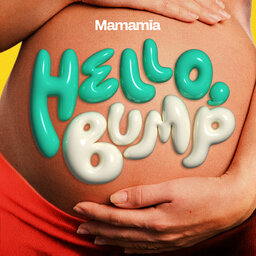Week 12: Hearing The Heartbeat
Welcome to Hello Bump, a podcast about what you’re not expecting when you’re expecting.
In this episode, hosts Jana Pittman and Grace Rouvray discover your baby is around the size of a plum or a jelly donut hole! Week 12 is last week of the first trimester and also when you might be able to hear your baby’s heart beat for the first time. Jana explains why you need a full bladder during ultrasounds, and what to do if you’re having trouble passing urine. Plus, Jana tells Grace exactly what doctors can understand about your baby’s development at this point in the pregnancy.
THE END BITS:
Discover more Mamamia podcasts here.
Email us: podcast@mamamia.com.au
Share your story or feedback. Send us a voice message, and one of our podcast producers will get back to you ASAP.
Are you a mum of a child aged 5 years or under? Are you expecting a little one? We want to hear from you! Complete our survey now for a chance to win a $1,000 gift voucher in our quarterly draw!
CREDITS:
Hosts: Jana Pittman and Grace Rouvray
Executive Producer: Courtney Ammenhauser
Audio Production: Thom Lion
Mamamia acknowledges the Traditional Owners of the Land we have recorded this podcast on, the Gadigal people of the Eora Nation. We pay our respects to their Elders past and present, and extend that respect to all Aboriginal and Torres Strait Islander cultures.
 Hello Bump
Hello Bump


